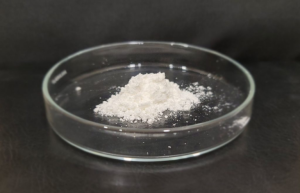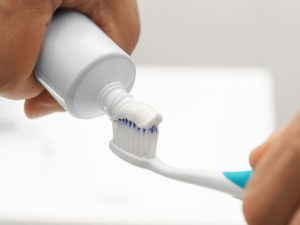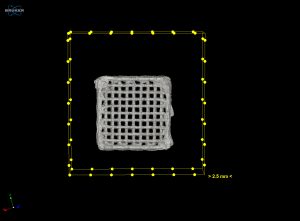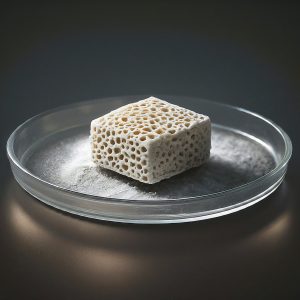Hydroxyapatite powder is increasingly being used as an ingredient in toothpaste due to its benefits for dental health. Here are some key points about hydroxyapatite in toothpaste:
1. Remineralization: Hydroxyapatite is similar to the mineral component of teeth and bones. It helps in remineralizing tooth enamel, which can prevent and repair cavities.
2. Whitening: It can aid in whitening teeth by filling in tiny cracks and smoothing the enamel surface, making teeth look brighter.
3. Sensitivity Reduction: Hydroxyapatite can help reduce tooth sensitivity by forming a protective layer over exposed dentin.
4. Biocompatibility: As a biocompatible material, it is safe and non-toxic, making it suitable for daily use in oral care products.
5. Antibacterial Properties: Some studies suggest that hydroxyapatite has antibacterial properties, which can help reduce plaque and prevent gum disease.
Hydroxyapatite Powder for Toothpaste
Hydroxyapatite Powder Usage in Toothpaste
Ingredients:
1. 3 tablespoons hydroxyapatite powder
2. 1 tablespoon baking soda
3. 1 tablespoon coconut oil (melted)
4. 10-15 drops of peppermint essential oil (for flavor)
5. Water (as needed to achieve desired consistency)
Instructions:
1. Mix the hydroxyapatite powder and baking soda in a bowl.
2. Add the melted coconut oil and mix well.
3. Add the peppermint essential oil and stir until combined.
4. Gradually add water to achieve the desired toothpaste consistency.
5. Store the toothpaste in a small jar with a lid.
Usage:
Use a small amount of the toothpaste on your toothbrush and brush your teeth as usual.
Rinse thoroughly after brushing.
Hydroxyapatite toothpaste can be a natural and effective alternative to conventional toothpastes, offering benefits like remineralization and sensitivity reduction.
Hydroxyapatite Toothpaste Benefit
Hydroxyapatite toothpaste offers several benefits for oral health due to its composition and properties. Here are some of the key benefits:
1. Remineralization of Tooth Enamel: Hydroxyapatite, which is chemically similar to the natural mineral component of teeth, helps to remineralize and repair damaged tooth enamel. This process can strengthen teeth and reduce the risk of cavities.
2. Reduction in Tooth Sensitivity: By filling in microscopic cracks and tubules in the enamel and dentin, hydroxyapatite can help reduce tooth sensitivity. This makes it an excellent option for individuals who experience discomfort when consuming hot, cold, or sweet foods and beverages.
3. Whitening Effect: Hydroxyapatite can help to whiten teeth by smoothing the enamel surface and filling in minor imperfections. This can result in a brighter, more uniform appearance of the teeth.
4. Antibacterial Properties: Some studies have suggested that hydroxyapatite has antibacterial properties, which can help reduce plaque buildup and prevent gum disease. This can lead to healthier gums and a lower risk of gingivitis and periodontitis.
5. Biocompatibility and Safety: As a biocompatible material, hydroxyapatite is safe and non-toxic for use in oral care products. It does not pose the same risks as some other toothpaste ingredients, such as fluoride, which can be harmful in excessive amounts.
6. Improvement in Oral Health: Regular use of hydroxyapatite toothpaste can contribute to overall oral health, reducing the likelihood of dental problems and promoting a healthier mouth environment.
7. Support for Sensitive Teeth: For those with sensitive teeth, hydroxyapatite toothpaste provides a gentle yet effective cleaning option that can help protect against further enamel erosion and sensitivity.
8. Scientific Support: Research has shown that hydroxyapatite is effective in promoting the remineralization of enamel and improving oral health. Clinical studies have indicated its potential in reducing cavity formation and enhancing tooth strength.
Using hydroxyapatite toothpaste can be a beneficial addition to your oral hygiene routine, providing a natural and effective way to maintain healthy teeth and gums.










